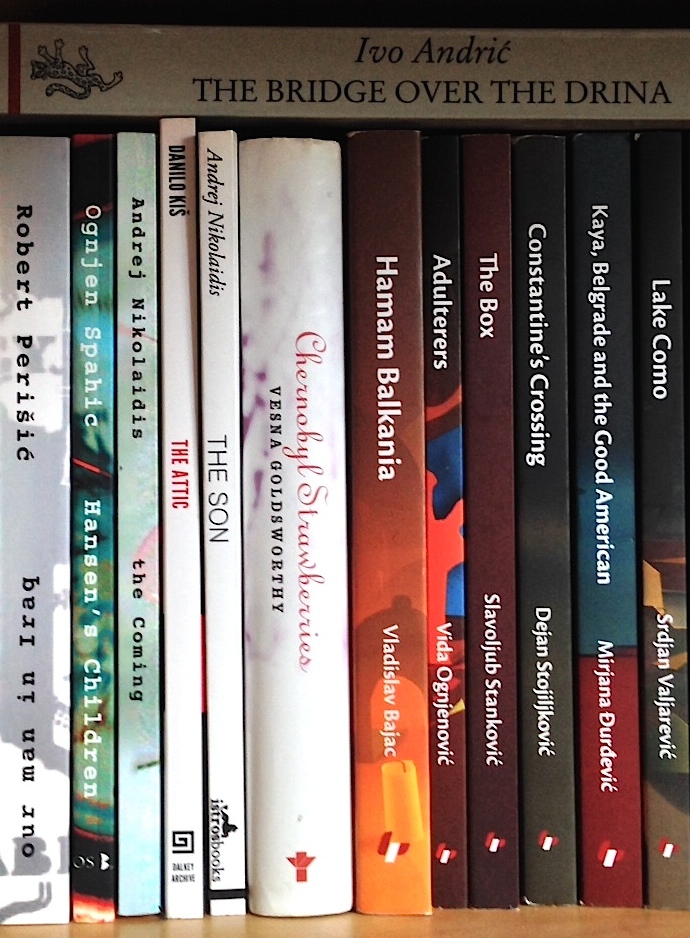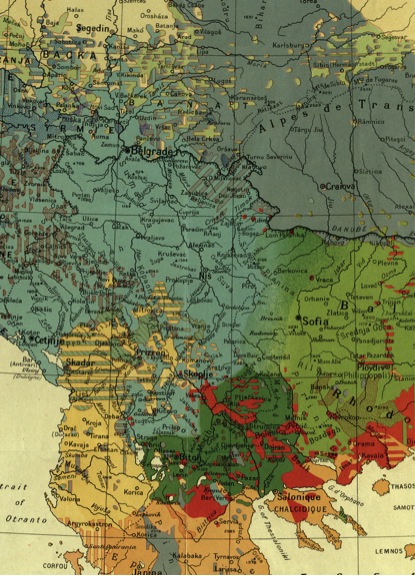Books in translation overlooked in school reading list
 People at all points of the compass place great social and cultural value on the art of storytelling.
People at all points of the compass place great social and cultural value on the art of storytelling.
Words can transport us to different worlds and times in just a few lines, while getting lost in a story, via a book, e-reader or even the spoken word, we learn about life, ourselves and the world around us.
Books and literature have long been at the heart of a good education, at home and at school.
Learning by any means fuels the engine of a considerate and well-informed society and many of life’s hardest lessons can be learned by reading a rich blend of literature and poetry from writers old and new, from close to home or further afield.
My love of books came from my parents. Books have always been a large part of my life and I enjoy reading different genres to suit the time, occasion or my mood.
Books to expand, inspire & entertain
I like a book to tell me something new, to expand my imagination or knowledge, but sometimes a book can be enjoyed as pure entertainment and I also love the chase of a good thriller.
Foreign literature in translation has been a passion of mine and I have developed a better appreciation of people, culture and history of other countries through books I have read from the Netherlands, Germany, Turkey, Russia and the Balkan states.
As a leading publisher of Balkan literature in translation, London-based Istros Books is a primary advocate of people enjoying a broad range of reading. Founder Susan Curtis-Kojakovic works tirelessly in South Eastern Europe to secure leading authors and translators to make the best Balkan books available in English.
 As part of an on-going drive to encourage more people to read books translated into English, Istros Books has partnered with the British Library to host Balkan Day, a celebration of creativity and identity on June 13.
As part of an on-going drive to encourage more people to read books translated into English, Istros Books has partnered with the British Library to host Balkan Day, a celebration of creativity and identity on June 13.
Across a format of discussion and debate, leading writers and academics from Serbia, Croatia, Montenegro and Bosnia will discuss literature and nationality. To register for a free ticket to #BalkanDay, click here.
Recently in Britain, the media and associated commentators have jumped on Education Secretary Michael Gove’s guidance to English Literature exam boards on which books should be favoured in classrooms.
The coverage has majored on Mr Gove’s directive to focus on British books and plays from 1914 until the modern day in addition to homegrown classics. Not surprisingly, translated texts do not get a look in.
British writers & poets lead the reading list
In redefining the set list of literature and poetry to be studied for exams in British schools, apparently being informed by consultation with teachers, Mr Gove is said to have focused on a broader range of key texts, while leaving sufficient space in the curriculum for further reading from an extended list.
British writers take pride of place on the proposed new GCSE English literature list proposed by Mr Gove. William Shakespeare, Charles Dickens, Jane Austen and Charlotte Bronte lead the pack, but are now joined by Willy Russell, Alan Bennett and Kazuo Ishiguro.
George Orwell’s Animal Farm is a set text, as well as Mary Shelley’s Frankenstein, William Golding’s Lord of the Flies, Robert Louis Stevenson’s The Strange Case of Dr Jekyll and Mr Hyde, and the Sherlock Holmes tale The Sign of Four by Arthur Conan Doyle.
For many, Anita and Me, a novel by British TV writer and comedy actress Meera Syal, is a surprise addition to the list.
The poetry list is built around the Romantics, plus British and Irish poets. Tennyson’s Charge of the Light Brigade is a set text, along with works by Heaney, Hughes and Owen. Surprise absentees include Dylan Thomas, WB Yeats, TS Eliot, Emily Dickinson and Sixth Form favourite Sylvia Plath. Alan Bennett’s History Boys makes it to the drama list.
Literature in translation should not be overlooked
Whether we subscribe to the opinion that the classics give children a leg-up in life or if we believe that a more selective mix of old school literature and the best of contemporary writing is more relevant in today’s world, one thing should be unavoidable: a love of books should be encouraged.
We are already seeing a drop in the love of literature. If we are to stem the tide away from enjoying books, we need to encourage, engage and inspire children and young people to read books that matter and mean something to them, as well as drawing their attention to the classics. Little of value can be achieved by placing unnecessary restrictions on access to new ideas and experiences
School reading lists should not be limited diet. Children need a varied diet of classics, contemporary writers and the best foreign literature in translation. Sticking to a tried and tested list will not stretch boundaries, expand perspectives or introduce new concepts to today’s younger generation. For that, we need variety, breadth and originality.
While I support a reassessment of the approved list, weighed down by works that have been considered untouchable since Tom Brown’s schooldays, it would be foolish to throw out the baby with the bathwater. Many of the titles deserve their place in our classrooms.
Controversy as much-loved books don’t make the grade
Although the Department of Education said that no title or author has been targeted by the list, Mr Gove has indicated his wish to move away from an over-reliance on a handful of omnipresent authors and books, such as John Steinbeck’s old staple Of Mice and Men, and well-trodden American classics from F Scott Fitzgerald, JD Salinger and Tennessee Williams. English writers Thomas Hardy, Graham Greene and Evelyn Waugh also miss out under Gove’s rule.
But while historic US commentators might feel aggrieved, the plight of American authors is nothing compared to that of European and world literature writers who are entirely overlooked.
I am all for promoting classic and contemporary British literature in schools, and a process whereby no title is untouchable and guaranteed a place on the list could be seen as refreshing, it should be done with care and consideration. I am not sure that Mr Gove is the right man for that task.
I also believe that an opportunity has been missed to expose young minds to works from beyond the borders of the English-speaking world. People should be encouraged to discover the many overlooked works from European and world literature that are translated every year by publishers like Istros Books and others.
We should be encouraging more people to read, inspiring a love of the written word and opening minds to new authors and works from at home and abroad.
• Anyone interested in learning more about Balkan literature and national identity can join some of the regions great writers, commentators and academics for Balkan Day at the British Library, on Friday, 13 June. Click here for more details and free admission. #BalkanDay


No comments yet.
Be first to leave your comment!